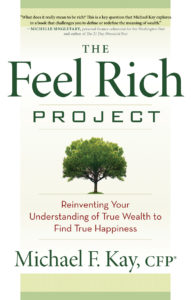Dear Liz: If you have all your required obligations covered during retirement, is having 70% of your portfolio in equities too risky?
Answer: Probably not, but a lot depends on your stomach.
Retirees typically need a hefty dollop of stocks to preserve their purchasing power over a long retirement, with many planners recommending a 40% to 60% allocation in early retirement. A heftier allocation isn’t unreasonable if all of your basic expenses are covered by guaranteed income, such as Social Security, pensions and annuities. Ideally, those pensions and annuities would have cost-of-living adjustments, especially if they’re meant to pay expenses that rise with inflation.
Historically, retirees have been told they need to reduce their equity exposure as they age, but there’s some evidence that the opposite is true. Research by financial planners Wade Pfau and Michael Kitces found that increasing your stock holdings in retirement, where the allocation starts out more conservative and gets more aggressive, may reduce the chances of running short of money. Their paper, “Reducing Retirement Risk with a Rising Equity Glide-Path,” was published in the Journal for Financial Planning and is available online for free.
That said, you don’t want your investments to give you ulcers. If you couldn’t withstand a big downturn — one that cuts your portfolio in half, say — then you may want to cushion your retirement funds with less risky alternatives.
 Today’s top story: 7 questions and answers about the fed rate hike. Also in the news: How to avoid the Social Security tax bubble, how the fed rate hike could affect your student loans, and how not to be tricked by retailers’ “regular prices.”
Today’s top story: 7 questions and answers about the fed rate hike. Also in the news: How to avoid the Social Security tax bubble, how the fed rate hike could affect your student loans, and how not to be tricked by retailers’ “regular prices.”  It’s going to be a zoo at the stores the next couple of days, the last full weekend before Christmas (next Sunday) and Hanukkah (which starts the night before). Plus, today is the last day for ground delivery from UPS and FedEx deliveries if you want your packages to arrive by Christmas.
It’s going to be a zoo at the stores the next couple of days, the last full weekend before Christmas (next Sunday) and Hanukkah (which starts the night before). Plus, today is the last day for ground delivery from UPS and FedEx deliveries if you want your packages to arrive by Christmas. Today’s top story: NerdWallet’s 2016 American Household Credit Card Debt Study. Also in the news: The best places in American for first-time homebuyers, why Christmas loans are the coal in your financial stocking, and the best free online courses to help with your finances.
Today’s top story: NerdWallet’s 2016 American Household Credit Card Debt Study. Also in the news: The best places in American for first-time homebuyers, why Christmas loans are the coal in your financial stocking, and the best free online courses to help with your finances. Today’s top story: Tips to save more for retirement in 2017. Also in the news: Why the key to saving may be in your head, why skipping a payment at the holidays is a bad idea, and a guide to holiday tipping.
Today’s top story: Tips to save more for retirement in 2017. Also in the news: Why the key to saving may be in your head, why skipping a payment at the holidays is a bad idea, and a guide to holiday tipping.  I’m giving away a copy of Michael F. Kay’s
I’m giving away a copy of Michael F. Kay’s